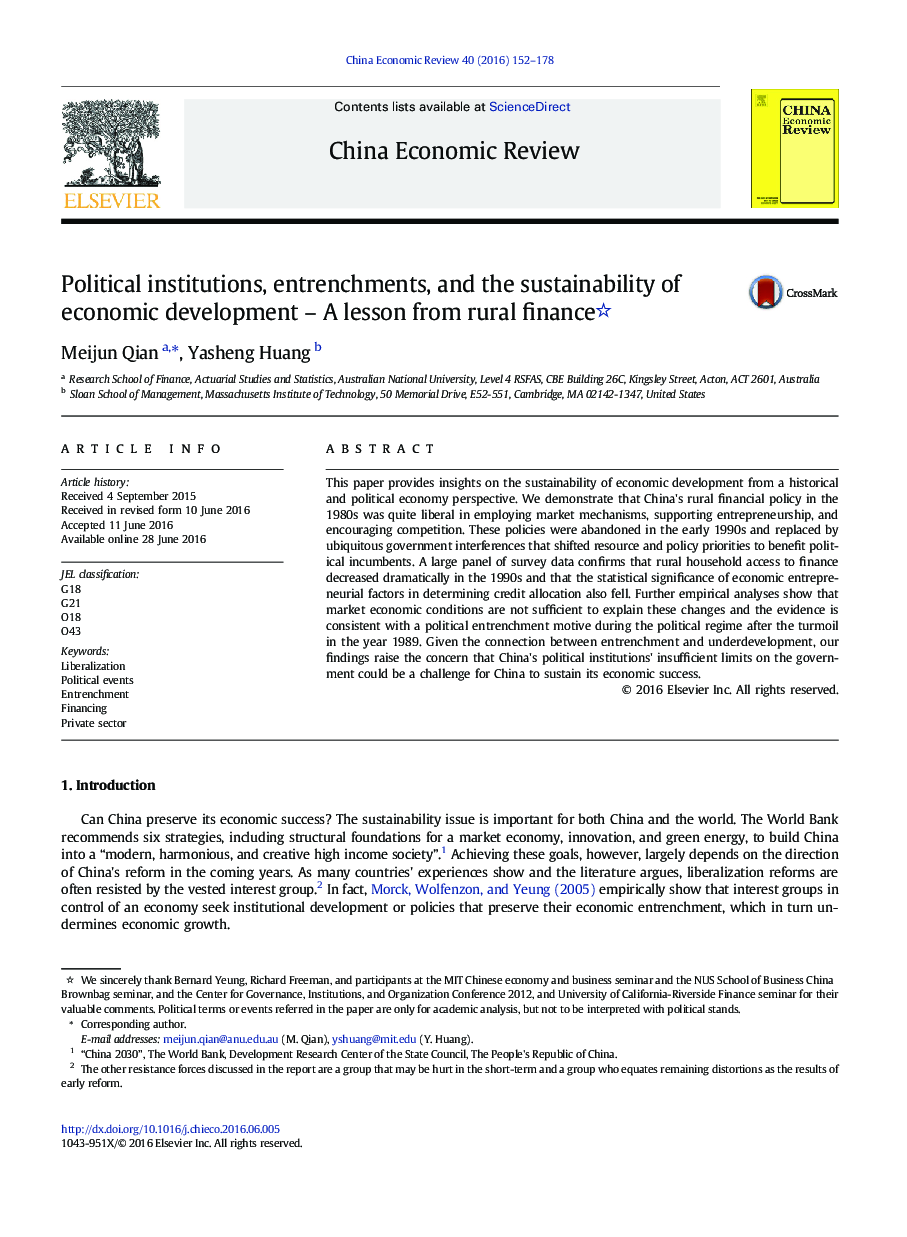| کد مقاله | کد نشریه | سال انتشار | مقاله انگلیسی | نسخه تمام متن |
|---|---|---|---|---|
| 5047196 | 1476261 | 2016 | 27 صفحه PDF | دانلود رایگان |
- Using a panel of survey data, we document that China's rural households had less access to credits in the 1990s than in the 1980s.
- While economic factors determine credit access in the 1980s, the predictability declined and political factors gained importance in the 1990s.
- Using bank financial data, we document that the Agricultural Bank of China underperformed in the 1990s compared with the 1980s.
- Although lending to rural households was positively associated with subsequent loan performance, credits to rural households declined in the 1990s.
- A review of bank documents shows a trail of illiberalization policy in the 1990s. The choices cannot be fully explained by economic factors.
- The empirical evidence is consistent with the political entrenchment hypothesis, raising concerns of economic stagnation in the future.
- The evidence in this paper calls for caution on a potential political challenge for China to sustain its economic development.
This paper provides insights on the sustainability of economic development from a historical and political economy perspective. We demonstrate that China's rural financial policy in the 1980s was quite liberal in employing market mechanisms, supporting entrepreneurship, and encouraging competition. These policies were abandoned in the early 1990s and replaced by ubiquitous government interferences that shifted resource and policy priorities to benefit political incumbents. A large panel of survey data confirms that rural household access to finance decreased dramatically in the 1990s and that the statistical significance of economic entrepreneurial factors in determining credit allocation also fell. Further empirical analyses show that market economic conditions are not sufficient to explain these changes and the evidence is consistent with a political entrenchment motive during the political regime after the turmoil in the year 1989. Given the connection between entrenchment and underdevelopment, our findings raise the concern that China's political institutions' insufficient limits on the government could be a challenge for China to sustain its economic success.
Journal: China Economic Review - Volume 40, September 2016, Pages 152-178
